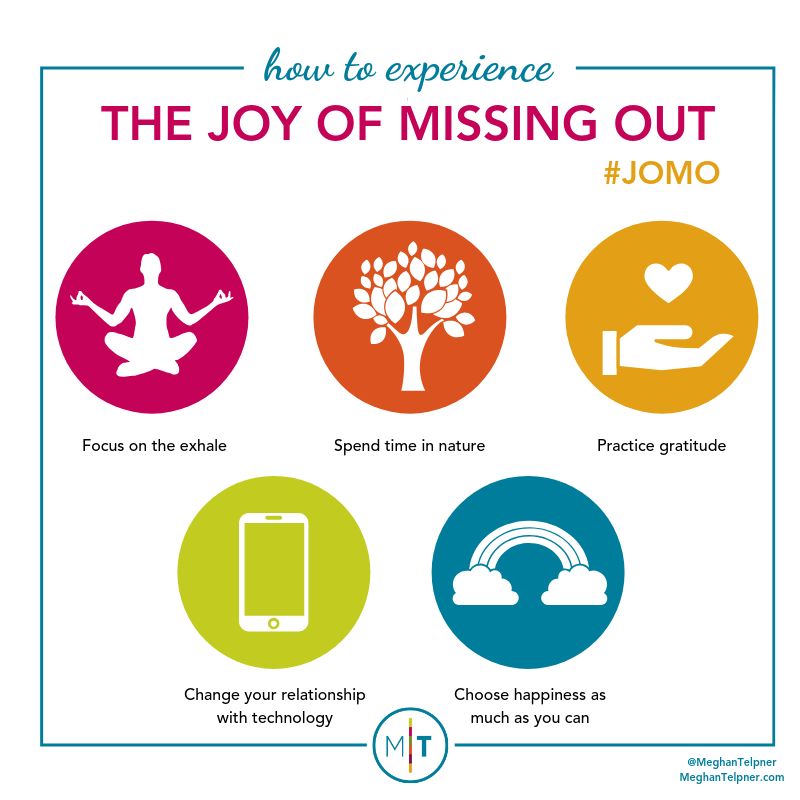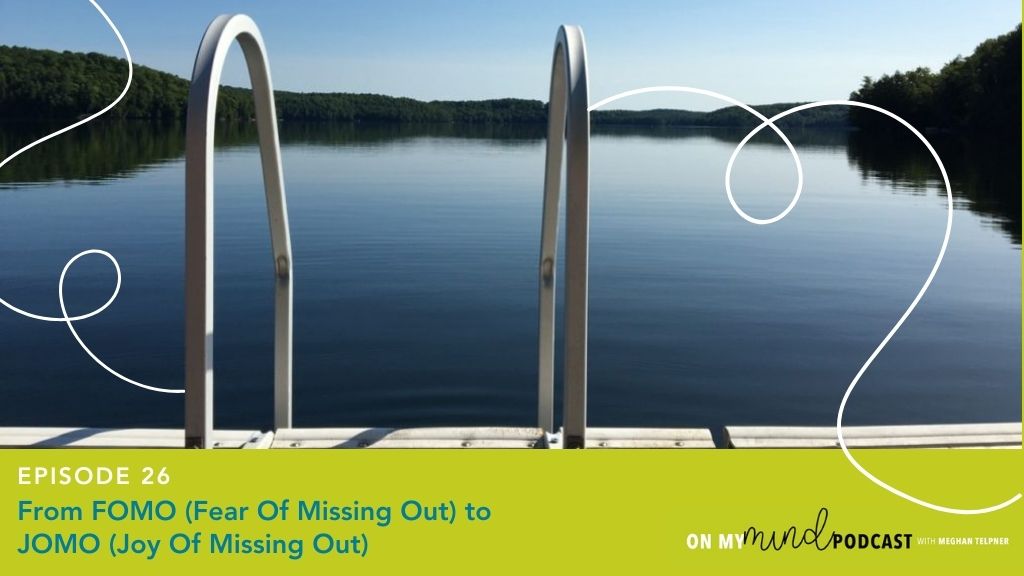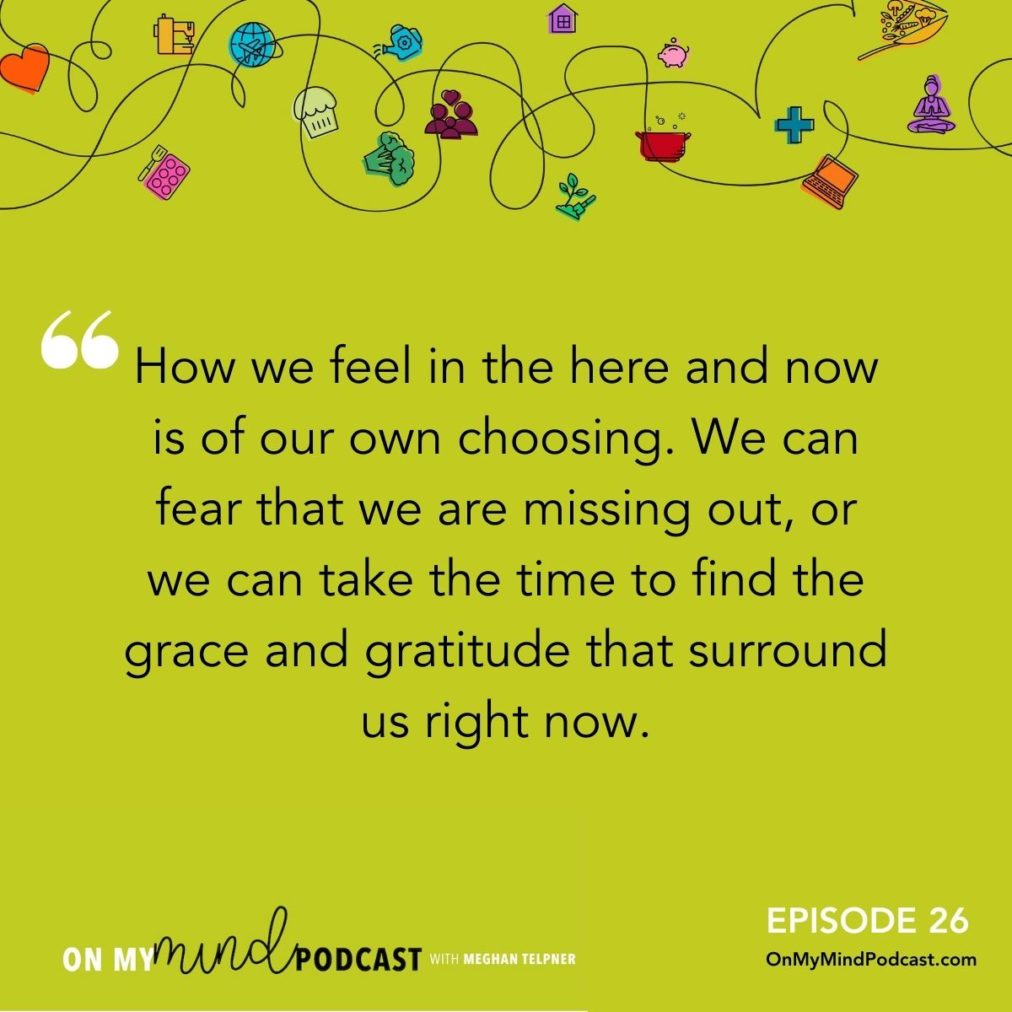We’ve all done this at one point: we’re out to dinner and constantly checking our phones, doubling, tripling, or quadrupling our schedules to make social plans, or checking other people’s photos and social media posts. This is the condition of FOMO, or “Fear Of Missing Out”.
What does FOMO look like?
The researchers describe FOMO as a “pervasive worry that others may have rewarding experiences that one is missing,” meaning we worry that we are being left out of the fun. While feelings of exclusion are nothing new, what makes FOMO such a modern phenomenon is social media and our obsessive desire to stay connected through our devices. This is what makes FOMO so prevalent. In the past, we might not know we missed a fancy party until days or even weeks later, but now we know we weren’t invited right away because we see posts from the party in real time.
FOMO has become an epidemic, and maybe that’s why we’ve built our lives in such a way that we’re constantly busy. If we stay busy then we feel justified in our own sense of place. We are doing something and as a result, the feeling of loss is reduced. But busyness is not a badge of honor, nor is it the solution to making us feel more included, welcome, or loved.
i’m to blame for that too. I’m scrolling through Instagram and wondering why I hadn’t heard about that conference everyone seemed to be at, or how I missed that amazing yoga class in the park.
can fomo be harmful to our health?
Research that has emerged over the last half decade on fear of missing out suggests that this phenomenon can lead to:
Much of this research is conducted on teenagers and young adults, but I don’t know if the results would be so different if people my age were the subjects. We all struggle with FOMO. What’s most concerning about this prevalence in the younger generation is that they often don’t know what it’s like to live without a smartphone, the internet, or other technologies, and these effects of FOMO are more likely to continue into adulthood without a course correction.
FOMO takes us away from being in the moment
The downside of FOMO for all of us is that we become so chronically – or seemingly – busy, that we can never be in the moment, here and now. We worry about where we should be next and what everyone else is doing.
What most of us fail to notice, in those moments, is that where we are is exactly where we are supposed to be. What we do is exactly what we are supposed to do. And how we feel in this moment here and now is our choice. We can fear missing out, or we can take the time to find the grace, gratitude, and little bits of awesomeness that surely surround us right now.
Fortunately, the emergence of FOMO has given rise to another phenomenon: the joy of missing out, or JOMO. This concept invites us to enjoy and celebrate our disconnection from technology and social media and live a healthier, happier life.
The trick and the challenge is learning how to follow JOMO. This is our job, something only we can do.
How to overcome FOMO and experience JOMO
1. Focus on Exhalation
It is in our breath, in the exhalation, that we can release into the present. Too often, we get caught up in the stress of being “busy,” take a shallow breath, and then find ourselves holding that breath with slumped shoulders and contracted lungs, pushing us right into the body’s stress response. The simplest strategy to move into the grace of the here and now, instead of worrying about what everyone else is doing, is to focus on the exhalation.
How to do it
Take the deepest breath you can, counting to five, then exhale to a count of 10. Extend the exhalation longer than the inhalation, then continue. You will feel different, and if you don’t do it yet, do it again. Again. As one of my favorite yoga teachers, Sean Corne, says, “Breathe and that will change.”
You can also check out my complementary lesson on coherence, a rapid breathing technique that changed my life.
2. Change your relationship with technology
Technology, and especially social media, are the strongest influences that lead to FOMO. I own an online business so this is hard, but it’s really hard for all of us because a lot of work requires us to use devices and be available at the touch of a button. You don’t have to give up technology or social media entirely, but it’s important to manage your consumption – not just to avoid FOMO, but to have more time to spend with the people you care about.
How to do it
Practice healthier mobile use, turn off all notifications on your phone, turn off your phone at night or leave it out at night, and turn off all devices an hour before bed.
3. Practice gratitude
We will always feel like we are missing out if we cannot appreciate what we have. Our life experience can be as awesome as we want it to be. Sure, there will always be challenges, but maybe this is an opportunity to learn a great lesson. We can find joy, fun, laughter and beauty in almost anything. This is the practice of gratitude, using the moments that challenge us as moments to look for the good.
How to do it
It doesn’t have to be as formal as the calendar, but go ahead if you want. Before you go to sleep, try recounting five awesome things that happened to you that day, and then marinate in that goodness all night. Try it for a week and you’ll be blown away by the influx of even more awesomeness.
4. Spend time in nature
Being outside has an incredible ability to ground us and improve our health. Disconnect – even for a short time – from technology and reap the health benefits of “forest swimming”, which include a boost to the immune system, reduced stress and pain, improved mood and better respiratory and cardiovascular health.
How to do it
Go for a walk in a forest. It really is that simple. Even if you live in a city, you can benefit from visiting an urban park or garden – learn more about it here.
5. Choose Happiness as much as you can
Every choice counts. Some of the suffering we experience every day is the result of questioning the choices we make or the result of giving that power of choice to someone else. What obligations or doubts can you release, knowing that every choice we make will build our emotional and physical health or work against it? Knowing that every choice counts, from diet to sleep, socializing to pooping, can you choose your own recipe for health and happiness? What choices would you make?
How to do it
Choose your recipe to feel great. What do you need to do, who do you want to see, where do you want or need to be in order to feel your ultimate glow, glow and glow best? Although we cannot always choose everything we would like, we do have the option to choose how to respond and react to any given situation. Exhalation and gratitude can also help there.

What are your best strategies for staying in the Here and Now and fending off FOMO?
On My Mind Episode 26: From FOMO (Fear Of Missing Out) to JOMO (Joy Of Missing Out)


Subscribe to your favorite podcast app today and never miss an episode.




Free resource library
Enjoy over 40 downloadable guides, recipes and resources.




